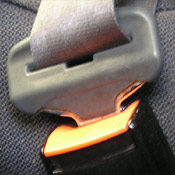
Tired of robbing Peter to pay Paul to insure your Dodge every month? You are in the same boat as many other drivers in Texas. Having so many insurance providers from which to choose, it can be impossible to find the best insurance company.
It’s smart to get comparison quotes before your next renewal because auto insurance prices go up and down regularly. Even if you think you had the best deal on Charger insurance at your last renewal you may be paying too much now. There is lot of inaccurate information about auto insurance on the internet, but in a few minutes you can learn the best ways to quit paying high auto insurance rates.
To get , there a variety of ways to compare rate quotes from auto insurance companies in your area. The best way to find the cheapest insurance rates is simply to get online rate quotes. This can be accomplished in several different ways.
- The single most time-saving way to compare a lot of rates at once is to use a rate comparison form (click to open form in new window). This form keeps you from doing separate quotation requests for every company. One form submission will get you price quotes from all major companies.
- A more difficult way to compare rate quotes consists of visiting the website of each company and request a quote. For sake of this example, let’s assume you want to get rates from State Farm, Safeco and Allstate. To do that, you would have to take the time to go to each site and repeatedly type in your coverage information, which is why the first method is more popular.
To view a list of companies in Houston, click here.
The approach you take is up to you, just make absolute certain that you use the exact same coverage data for every company. If you enter different coverage information then you won’t be able to make a fair rate comparison in Houston. Even a minor difference in coverages may result in large price differences. And when comparison shopping, quoting more increases the change that you will find more affordable insurance. Some smaller insurers to not give online rate quotes, so it’s necessary to compare price quotes on coverage from those companies, too.
Auto insurance in the media
Companies like State Farm, Allstate and GEICO constantly bombard you with ads on TV and radio. They all advertise claims about how much you will save if you just switch your policy. How does every company offer you a better deal?
Auto insurance companies have specific criteria for the right customer that earns them the most money. One example of this type of driver may need to be a female over age 40, has never had a policy lapse, and drives a vehicle with a low ISO rating. Anybody that matches those criteria will get low prices and most likely will save money with a new company.
Potential insureds who don’t qualify for those criteria will be charged more expensive rates which leads to the customer not buying. If you listen closely, the ads state “drivers that switch” not “everybody who quotes” save money. That’s the way insurance companies can advertise the way they do. That is why drivers should compare many company’s premium rates. Because without a comparison, you cannot know which company will give you the biggest savings.
Auto insurance discounts help lower rates
Some insurance providers don’t always list all possible discounts very well, so we break down a few of the more common and also the lesser-known credits available to lower your premiums when you .
- Student Discount for Driver Training – Reduce the cost of insurance for teen drivers by having them enroll in driver’s education if offered at their school.
- Safe Driver Discount – Safe drivers may save up to 50% more on Charger insurance compared to rates paid by drivers with frequent claims.
- Smart Student Discounts – Being a good student could provide a savings of up to 20% or more. Most companies allow this discount up until you turn 25.
- Telematics Devices – Drivers that enable companies to analyze their driving habits remotely like Allstate’s Drivewise might see lower rates as long as they are good drivers.
- Drive Less and Save – Keeping the miles down on your Dodge can earn slightly better auto insurancerates than normal.
- Save with More Vehicles Insured – Buying insurance for all your vehicles on one policy may reduce the rate for each vehicle.
- Anti-lock Brakes – Cars, trucks, and SUVs that have steering control and anti-lock brakes have fewer accidents and the ABS can save up to 10%.
- Theft Deterent – Vehicles with anti-theft systems prevent vehicle theft and will save you 10% or more.
- Houston Homeowners Discount – Owning your own home or condo can save a few bucks since owning and maintaining a home shows financial diligence.
As a sidenote, most discount credits are not given to the entire policy premium. The majority will only reduce the price of certain insurance coverages like comprehensive or collision. Just because it seems like you would end up receiving a 100% discount, it just doesn’t work that way.
Companies and some of the premium reductions they offer include:
- State Farm has discounts for good driver, driver’s education, multiple autos, safe vehicle, and anti-theft.
- Progressive discounts include online quote discount, good student, multi-policy, homeowner, continuous coverage, and multi-vehicle.
- Progressive may include discounts for good student, homeowner, multi-policy, online signing, online quote discount, and multi-vehicle.
- MetLife may offer discounts for multi-policy, defensive driver, good student, claim-free, and accident-free.
- Farm Bureau policyholders can earn discounts including renewal discount, good student, multi-policy, 55 and retired, youthful driver, and multi-vehicle.
- GEICO includes discounts for anti-lock brakes, defensive driver, seat belt use, good student, daytime running lights, anti-theft, and driver training.
- SAFECO has savings for safe driver, multi-car, teen safety rewards, teen safe driver, and drive less.
When quoting, ask every prospective company how many discounts you can get. Some discounts may not be available in your area. To locate insurers that have a full spectrum of discounts in Texas, click this link.
Which is the best auto insurance?
When buying coverage, there really is not a “perfect” insurance plan. Coverage needs to be tailored to your specific needs so your insurance should reflect that Here are some questions about coverages that may help highlight whether you will benefit from professional help.
- Can I afford low physical damage deductibles?
- Does my liability insurance cover pulling a trailer or camper?
- Is my nanny covered when driving my vehicle?
- Do I get a pro-rated refund if I cancel my policy early?
- Can I still get insurance after a DUI?
- Does my personal auto insurance policy cover using my vehicle for business use?
If you’re not sure about those questions, then you may want to think about talking to an insurance agent. If you want to speak to an agent in your area, simply complete this short form or go to this page to view a list of companies.
More tips and info about auto insurance is located at the Texas Department of Insurance website. Visitors are able to file complaints about a company, view agent and company licensing information, and find out industry alerts.
The articles below may also help you learn more about auto insurance in Houston
- Tricks for Effectively Comparing Houston Texas Car Insurance Rates
- Lowest Prices from Houston Car Insurance Agents
Don’t give up on cheaper rates
When trying to cut insurance costs, do not reduce needed coverages to save money. In many instances, an insured cut liability limits or collision coverage and discovered at claim time that the small savings ended up costing them much more. The goal is to buy the best coverage you can find for the lowest cost while not skimping on critical coverages.
There are still a few companies who do not offer rates over the internet and many times these regional insurance providers only sell coverage through independent insurance agents. Budget-friendly auto insurance is possible online as well as from insurance agents, so you should compare both to have the best chance of lowering rates.




